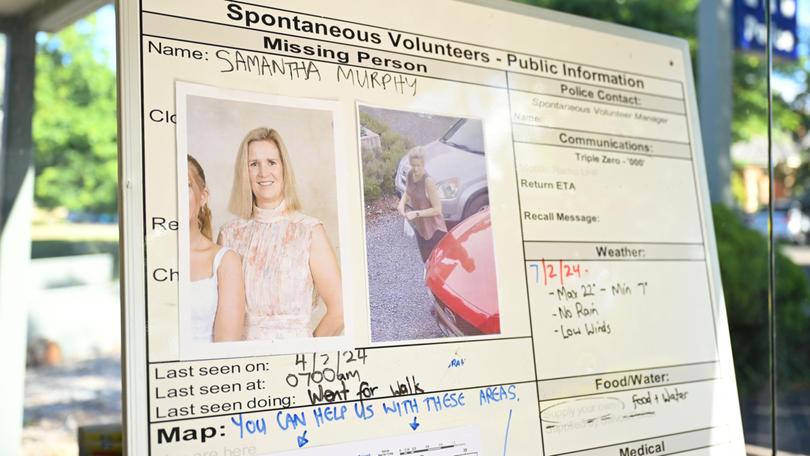EDITORIAL: Murder charge shows it’s dangerous to be a woman
As women gather on Friday for International Women’s Day events, it’s a fair bet that celebrations will be muted.

As women gather on Friday for International Women’s Day events, it’s a fair bet that celebrations will be muted.
News today that a man has been charged with the murder of Ballarat woman Samantha Murphy brings with it conflicting emotions.
Relief, for her family, friends and Australians generally that they will finally learn what happened to Ms Murphy, who hasn’t been seen since she left her home for a jog in early February.
Sign up to The Nightly's newsletters.
Get the first look at the digital newspaper, curated daily stories and breaking headlines delivered to your inbox.
By continuing you agree to our Terms and Privacy Policy.Hope that her body will be found and justice served.
If the allegation of murder turns out to be true, Ms Murphy will become one of the dozens of women killed in Australia each year.
Her death reinforces the tragic reality that it is still dangerous to be a woman in this country.
On average, one woman is killed by a current or former partner every week in Australia. In this instance, the man police have charged with Ms Murphy’s murder appears to be entirely unconnected with the Murphy family.
You’ve likely heard the statistics before, but they bear repeating.
Two in five Australian women have experienced violence since the age of 15. Half of women have experienced sexual harassment and one in five has experienced sexual violence.
Men are significantly more likely to be the perpetrators in all incidents of violence and harassment against women.
We also know that women still face disadvantages in the workplace.
The release late last month of data showing the pay gaps at 5000 of Australia’s top employers was proof of that. Even after decades of progress, an Australian woman can still expect to take home 19 per cent less than a man.
The reasons for the gender pay gap are complex, but in large part it is caused by the fact that women still take on the bulk of unpaid caring responsibilities, limiting their ability to earn more through overtime or bonuses. That’s an issue that society as a whole must address, but employers do have the power to smooth the path for women by providing flexibility wherever possible.
The release of the WGEA data means the spotlight is on individual businesses like never before. No longer can they hide behind purple cupcakes and lip service to equality. They must show progress or be called out for their empty promises.
All of that said, Friday should also be a day to acknowledge the contributions of women to society.
Every day, women are doing remarkable things, in roles paid and unpaid. In offices, on mine sites, in homes and in boardrooms, on sporting fields and everywhere in between.
Some are publicly feted for their accomplishments. Many others are not. Their contributions may fly under the radar, but that in no way diminishes their significance.
For them, for Ms Murphy and her three children, and for society as a whole, we must continue working towards true equality.
Responsibility for the Editorial comment is taken by Editor-in-Chief Anthony De Ceglie.
